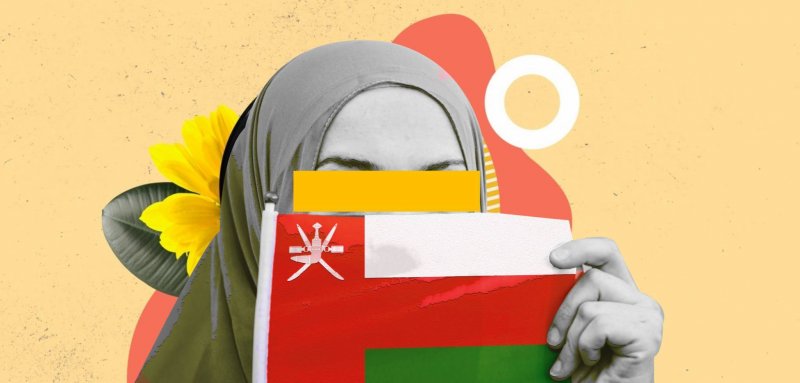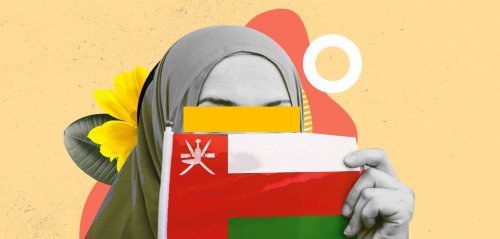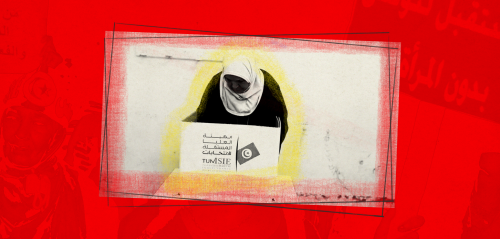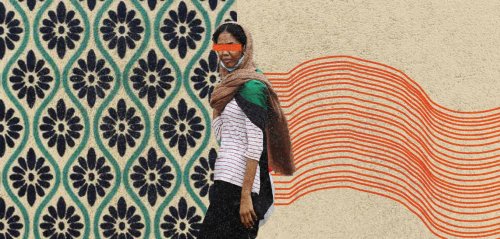My grandmother did not learn letters and reading until a few years ago. She had fled Zanzibar with her family after the revolution there, and when she returned to Oman, she lived in her father's house until she became of age and married my grandfather.
She did not learn to read or write in my grandfather's house, even though she gave birth to many children in many successive years. They all grew up to graduate from universities and get higher degrees, with some teaching there afterwards, and when my grandfather — who was a typical example of a traditional Omani afraid of society’s view — decided that my mother should not study either, my uncle was able to convince him to complete her university studies and start working.
My grandmother did not have the same opportunity that my mother and her sisters had, and she was not born in a time that allowed me — and most of the girls of my generation and the generations before and after us — to attend university, study and work. Even though we still hear about many girls who are still deprived of the right to university and even school education, and are still considered a burden on family honor, and thus must be sold off before they are corrupted or spoiled, I still try, in many cases, to imagine what things would be like if my grandmother had been able to attend university. If my bright and intelligent grandmother, who knows a thousand tales about the past, who memorized the Prophet’s hadiths, and learned to read at an old age, had went to university and was able to obtain a degree in any field, everything would have changed, and our reality today would have perhaps been better than how it is now.
In my grandmother's time, there were no universities in Oman, and there weren’t even any schools, except for two in Muscat and Salalah. There was a teacher in some villages who taught people how to read and write, mathematics, and the Qur'an. My grandfather did not have a better educational opportunity than my grandmother, since the authorities were trying to maintain ignorance, and to this day, with all sources of information available, it is still trying to perpetuate it.
The world was rising and growing. Not only the Western world, but also our world and the region, while Oman remained trapped within the cages of an authority that didn't want its people to know about the existence of petrol
Despite this, there was an overwhelming desire among the Omanis to learn, evidenced by how angry my grandmother was when my mother missed the opportunity to study for a master's degree, for flimsy reasons, and wouldn’t speak to her for a while. My grandmother wanted her daughters and granddaughters to have a better life, and she bravely endured her sons being physically distant for travel and permanent expatriation in order to study.
My grandmother didn't have the opportunity to learn, but she took advantage of her opportunity to learn to read when the children grew up. The entire generation of my grandmother and my grandfather, and those who preceded them, did not get their opportunity, in a time when the world was rising and growing. Not only the Western world, but also our world and the region, while Oman remained trapped within the cages of an authority that didn't want its people to know about the existence of petrol. And when the sons of merchants and the wealthy went out to study in Egypt, Lebanon ,and Kuwait, the rest of the people were not able to even wear shoes, and when Islamic and secular revolutionary movements rose, those who were able to suppress them came out and silenced people with mere crumbs of their most basic rights, planting in their minds that they had been so gracious by giving them to the people.
There are many girls in Oman to this day who have not been able to complete their secondary and university studies, because of the looming figure of a husband in a society that leaves young girls who had not yet reached the age of 18 or finished school to become entrapped in a forged marriage contract claiming that she had been married at the legal age. How many countless attempts were made by my mother, a teacher, and her colleagues trying to convince controlling and authoritarian fathers to let their daughters complete their secondary education at the very least, while the authority itself looks the other way and remains silent? One of the girls recounts her story, stating how she attended university after strong opposition from her father and male brothers, and when she had only one semester left to graduate, they decided to prevent her from studying and locked her in the house, and under their abuse and violence, she could not fight back.
And what about the young women who could not pursue their dream job because their family believes that some majors are not suitable for women? Some aren’t allowed to enter the Faculty of Law or Engineering, and sometimes medicine, because they must not examine men or see the male body, while I and many of my friends were prevented from going on a study scholarship outside the country because it isn’t permissible for a girl to travel abroad without a mahram (male guardian).
Many girls from my generation and the generation before me, fell into the cages of a marriage where their husbands were often no less controlling than their fathers were - girls who couldn't complete their studies, and were never able to leave those cages
Many girls from my generation and the generation before me, fell into the cages of a marriage where their husbands were often no less controlling than their fathers were — girls who couldn't complete their studies, and were never able to leave those cages of theirs. I cannot begin to express how sad it makes me when so many girls today, at such an early stage in their lives and often willingly, turn towards marriage while they are studying at university. I am not objecting to the right to choose. I only object because I know that this often puts them under the power and authority of their husbands, who usually try to make them leave their studies or forbid them from working, or the girl herself will drop out because of pregnancy or duties in her home.
Today, we are faced with a state-led trend in reducing opportunities for higher education, and no one is completely sure whether this is due to the bad economic situation, or a new attempt at raising ignorance in a people who are not even aware or educated in the first place. The ones who fall victim to this type of decline the most are women, as the chances are often higher for males when it comes to study. This general trend increases ignorance rates and reduces opportunities for university education. In addition to this, the unemployment crisis helps reduce women’s job opportunities, which were not even that many in the first place, and this is what reconstructs those ideas that direct girls, whether they are willing or forced, to get married, they are often forced, even when willing, to do so early under intense social pressure.
I don't know what would have happened if my grandmother had studied at university, and I don't know if our world would have been better, but I think that perhaps all of us as women would have the ability to be in a better position. If my grandmother and the women of her generation had studied in universities, they would have shortened the time for us in demanding for our most obvious and basic rights, and there would have been resistance to repel the torrents of perpetuated ignorance in our society.
* The views and opinions expressed in this article are those of the author’s and do not necessarily reflect the official policy or position of Raseef22
Raseef22 is a not for profit entity. Our focus is on quality journalism. Every contribution to the NasRaseef membership goes directly towards journalism production. We stand independent, not accepting corporate sponsorships, sponsored content or political funding.
Support our mission to keep Raseef22 available to all readers by clicking here!
Interested in writing with us? Check our pitch process here!









